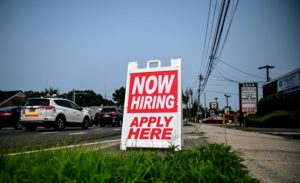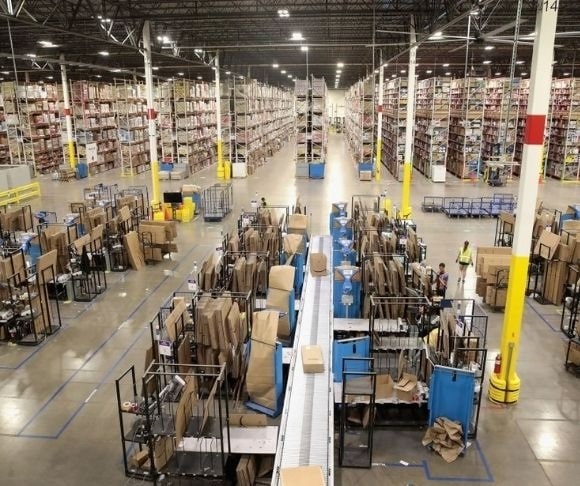After a wildly successful last two years throughout the pandemic, the tech industry is hitting speed bumps and trying not to crash. While most US employers battle to hire more workers, Meta, Uber, Amazon, Robinhood, and others are slamming the breaks on acquiring new talent. Are their plummeting stocks just temporary due to inflation and the end of the pandemic, or is this a long-term retrenchment?
Technical Difficulties
 In general, companies are itching to hire Americans, and there has never been a better time to find a job. Openings recently hit a record high of 11.5 million by March. Meanwhile, the unemployment rate has tumbled down to 3.6% as of April. However, these numbers don’t apply to the state of the tech industry.
In general, companies are itching to hire Americans, and there has never been a better time to find a job. Openings recently hit a record high of 11.5 million by March. Meanwhile, the unemployment rate has tumbled down to 3.6% as of April. However, these numbers don’t apply to the state of the tech industry.
Holding a very insignificant percentage of the labor market, positions in tech offer some of the highest paying salaries. But these positions are few and far between, and they’re becoming increasingly harder to obtain and maintain. Companies both big and small have attributed layoffs and hiring freezes to inflation, rising labor costs, struggling economies, and business slowdowns. Even tech giants such as Google and Meta have frozen hiring engineers for 2022, despite expanding in VR, the Metaverse, and smart devices.
Why?
The pandemic was a gold mine for social media companies, Amazon, online retailers, and virtual services. Now that Americans are out and about, however, the time and money spent online out of necessity are declining, and companies that shot to the moon are coming back down to earth.
The pandemic hiring sprees of Amazon, when the company took seemingly anyone and everyone to work in warehouses and deliver goods, have led to an overstaffing issue, hence their layoffs. Robinhood is also making harsh cuts after a hiring spree, which allegedly led to overlapping job functions. As a result, the retail brokerage dismissed 9% of its full-time employees. Peloton, a crashing bike-workout company, also cut 20% of its corporate workforce to stay afloat.
According to experts, the causes of the tech industry taking a downward turn and dumping unnecessary baggage do not signal a general slowdown or a crash. Instead, they just show that the swift pace at which these businesses expanded, when they were drowning in cash and desperate to hire, is simply over. As Americans return to normalcy, so are the tech markets.
Standing in Stark Contrast
Employees across the rest of the economy, who wield immense power against employers fighting eagerly to hire new talent, are still quitting their jobs. The labor market is tight, and experts expect it to stay that way. So who’s currently losing in this fight to hire? Seasonal companies and small businesses seem to have fared the worst.

(Photo by Thomas A. Ferrara/Newsday RM via Getty Images)
Towns are painted with “Now Hiring” signs as local restaurants, mom and pop shops, and other non-corporate entities can’t compete with McDonald’s, Red Lobster, or Starbucks. Due to inflation, employees need more. They need financial security and higher pay, which service jobs cannot guarantee. Owners of small businesses have had to run cash registers, bus tables, or close their establishments early because they simply can’t staff the place. Hopefully, these competitive markets won’t lead to small businesses failing and closing, especially after fighting so hard to survive the pandemic.
Seasonal companies face the same issue. As we get close to summer, water parks, pools, adventure parks, and other hot spots are struggling to secure temporary employees. College and high school students are typically the key target demographic for these jobs, but they are either still in school or wrapping up their studies, and the volume of job openings compared to available workers makes it nearly impossible for all companies to fill positions and train their employees for the summer months.
The US economy’s technology sector may yet come out of the current trials leaner, more efficient, and less volatile, but the future is still not certain. Nobody today can accurately predict when the outlook will improve – and the uncertainty adds to businesses’ financial struggles in a sort of self-fulfilling prophecy. The next generation of tech workers might do well to have backup plans – or be prepared to deal with much stiffer competition for the plumb jobs.




